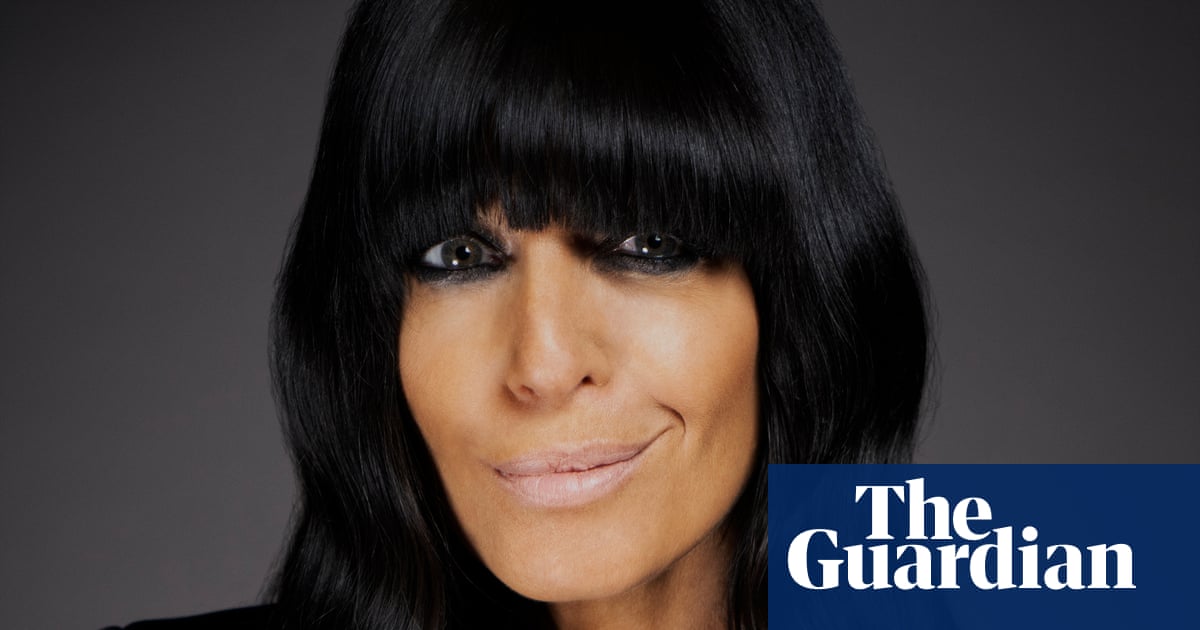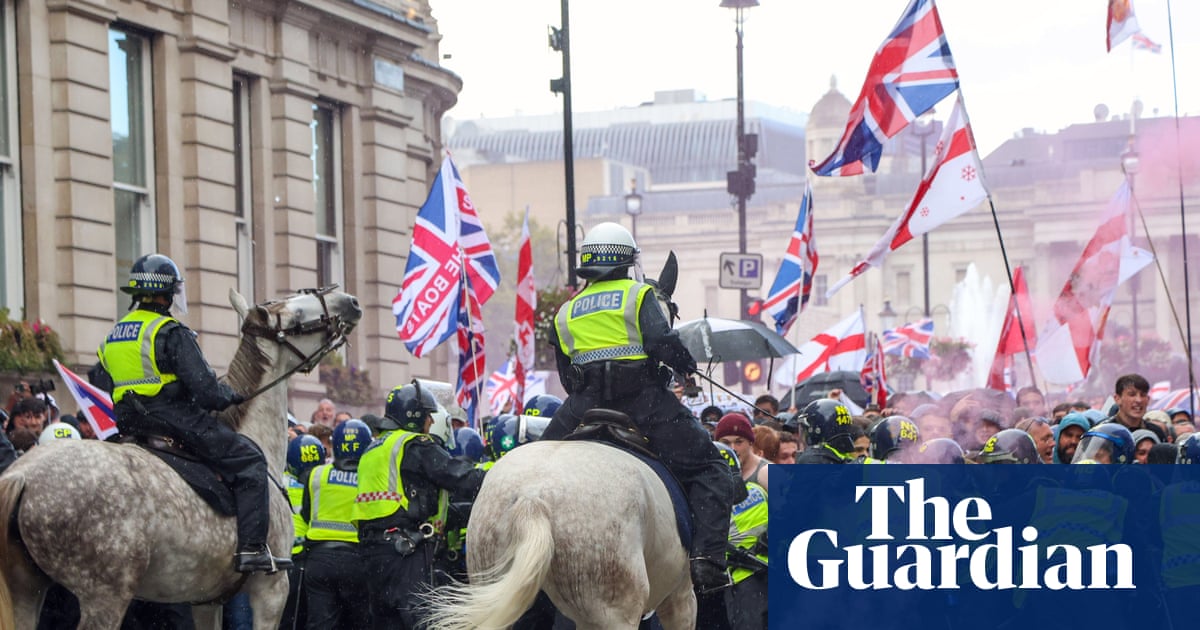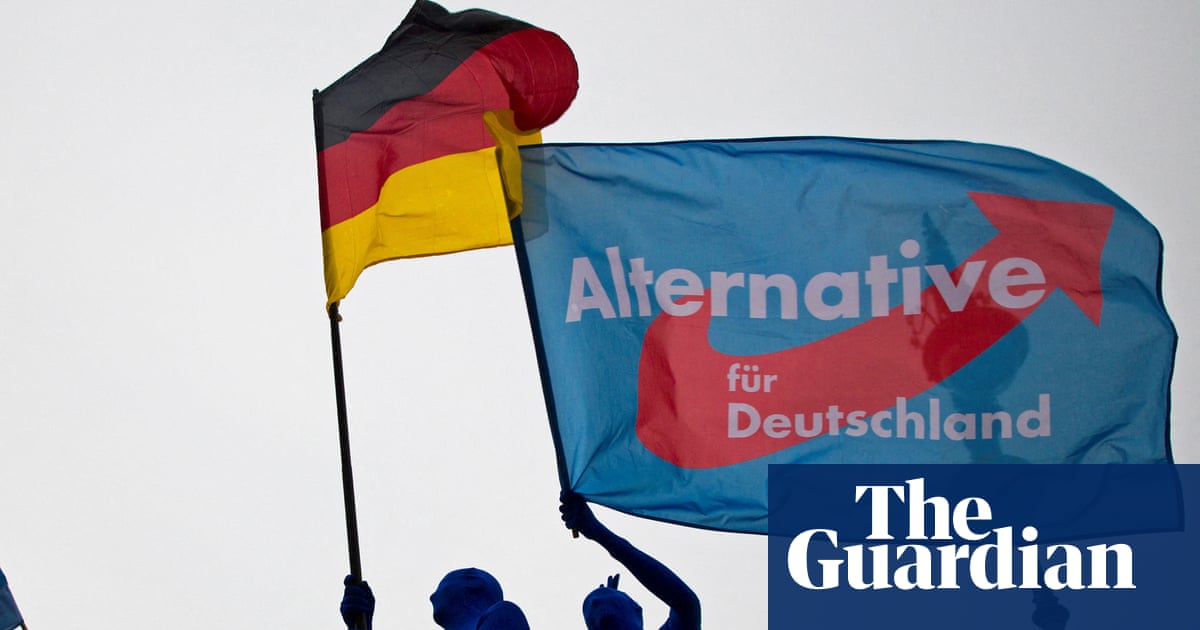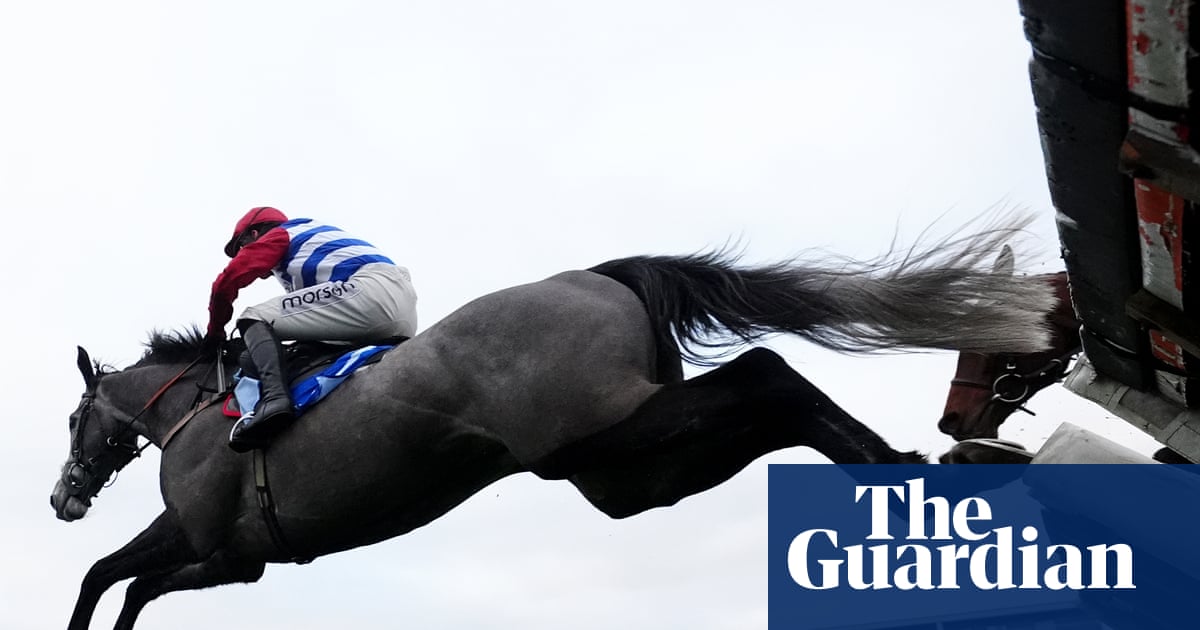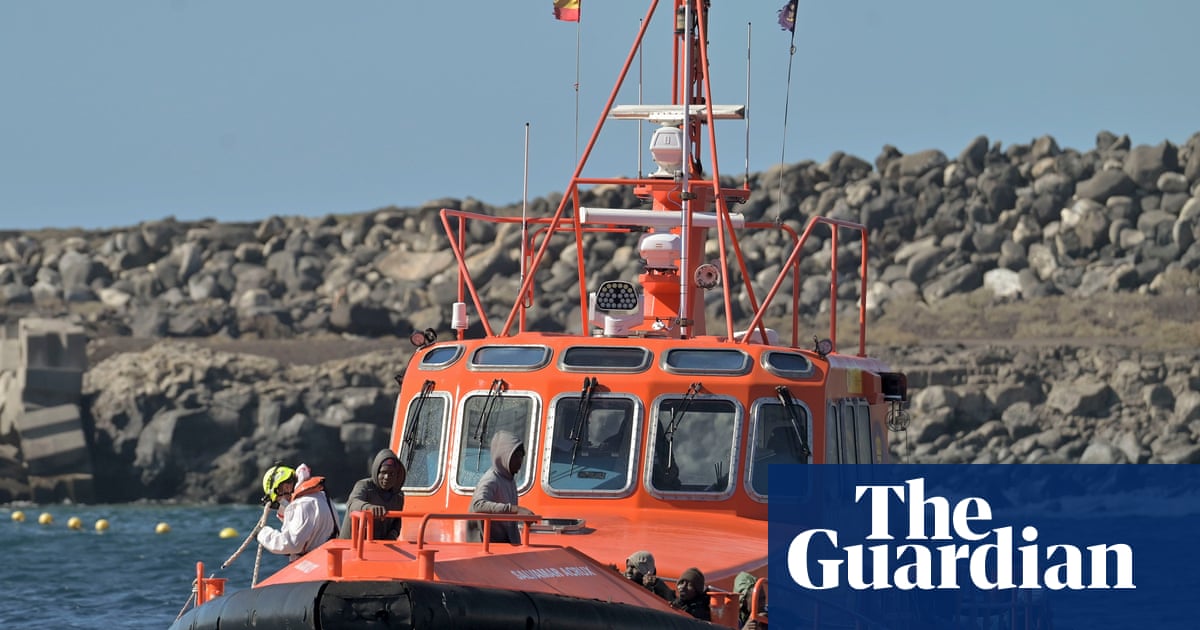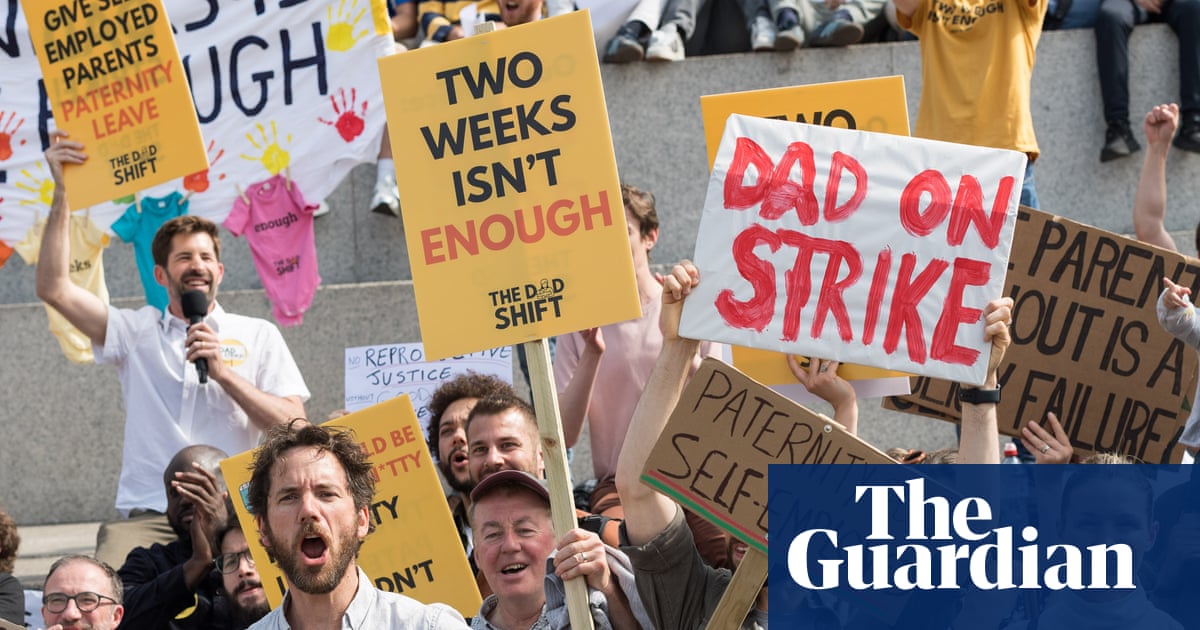For months, militiamen on the perimeters of El Fasher have asked those few who managed to escape the besieged Sudanese city whether Mohamed Khamis Douda was still inside. They shared videos threatening to kill him, which, as they hoped, made their way to the activist.
Even as the hunger and fear of living under siege and bombardment made him desperate to leave, Douda remained inside El Fasher, constantly working to let the outside world know what was happening to the people there. Then, on Sunday 26 October, Sudan’s paramilitary Rapid Support Forces overran the city and it was too late. His friends and family have confirmed to the Guardian that Douda has been killed.
As the official spokesperson for Zamzam, the displacement camp in Sudan’s Darfur region, Douda found himself at the centre of the world’s largest humanitarian catastrophe. Injured during the RSF’s massacre there in April in which hundreds of civilians were killed, he had to be carried to the relative safety of nearby El Fasher.
Since then, Douda had been in regular contact with the Guardian, describing daily survival in a place that for months has seemed doomed to fall to the RSF.
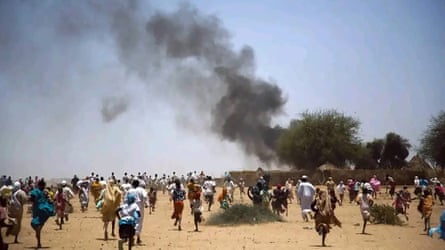
In the lead up to the assault on Sunday, the RSF had squeezed El Fasher’s inhabitants by throttling supplies of food, water and medicine, and building earthen barriers tocontrol who moved in and out.
These are some of the accounts Douda shared with the Guardian:
Monday 4 August
I awake each morning tired from the efforts of the previous day. Our first struggle is the merciless hunger and the second is the constant artillery shelling.
Even the glow of a cigarette can alert the drones that fly overhead, so once we finish our meals there is nothing to do but sit in silence, listening to the sound of the buzzing drone and the explosions.
This is our daily life, we live in hope that this nightmare will one day end.
In the months leading to El Fasher’s fall, Douda said it felt as if he was being followed by drones. Many nights were spent inside a crude bomb shelter made from a metal container buried in the ground. He spent the nights in silence and darkness, afraid of the drones and explosions he could hear around him.
Each day started with the search for food. The goal was always to try to find some millet or sorghum flour but as food dwindled, he inevitably had to rely on ombaz – a residue left over from the production of crushing peanuts for oil production. It was usually fed to animals but in El Fasher people were grinding it down and boiling it into an aseeda – the Sudanese staple food usually made from grains such as sorghum or wheat. By the end, Douda said people were eating cattle hides because even the ombaz had run out.
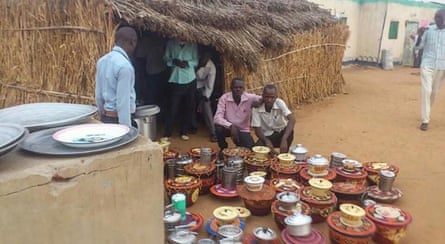
He balanced his struggle for survival with trying to support those around him. With friends he helped to deliver food or water and he documented rights abuses while also organising burials for the dead. He believed it was this that attracted the ire of the RSF, when he shared information about Colombian mercenaries fighting on the peripheries of El Fasher.
Monday 11 August
I awoke to the sounds of explosions in the northern part of the city, near the Abu Shouk camp for displaced people. Then I heard a roar from the south-east. I looked up and saw two drones.
I rushed to nearby homes and told them to take shelter. We spent the day in silence, listening to the shelling and machine guns for more than six hours before finally the good news came that the RSF had been expelled. There are 60 martyrs and 100 injured.
I went with my friend Ahmed to visit the wounded – there were countless women and children hit by stray bullets. We helped the teams supporting them and organising the burials for the dead.
On our way home I suggested to my friend that we leave the city. He went silent, then showed me videos on his phone of young men being tortured by the RSF between El Fasher and the Tawila area after they had tried to leave El Fasher.
“Then it’s better for us to stay here until the end,” I said.
Douda’s phone often went silent for long periods, but each time he would return with the latest updates from the city. In September, it seemed El Fasher was going to fall when the RSF carried out a heavy attack on the Abu Shouk and Daraja Oula areas, including the killing of dozens while they prayed in a mosque.

When he came back online, Douda said people could no longer move and tried to spend their days inside their makeshift bomb shelters but the unbearable heat made it difficult to remain there.
Wednesday 24 September
I cannot leave the house any more, even to get some food. The people who ran the community kitchens, to feed people, they cannot leave either. Whenever someone moves, the drones attack.
I spend all my time thinking about how I can escape the city but as much as I try, I cannot work out how. I hear that the RSF are trying to find me because I speak out against them. When they find people leaving the city they show them my picture and ask if I am still here.
Every day, the RSF gets closer and they are ready to kill everyone in El Fasher. The world needs to act quickly.
Despite Douda’s regular updates through Facebook and directly to media, nothing changed.
Within a day of last Sunday’s attack, news began to come in of arrests such as that of Al Jazeera’s Muammar Ibrahim, and the killing of Siham Hassan, a former MP who had helped to feed people through El Fasher’s community kitchens.
Campaign group Avaaz immediately raised concern that the RSF were hunting down activists and searching phones for any sign of communication with the media or human rights groups.
“This is the loss of an entire generation of Sudanese activists and Sudanese youth, who not only led the revolution [of 2019] and lived the values of peace, justice and freedom,” says Shayna Lewis, at Preventing and Ending Mass Atrocities. “That generation is being strategically wiped out with reports of lists that the RSF have of civil society members.”
Lewis describes Douda as a hero who gave his life to highlight atrocities in Zamzam and El Fasher.
“I can’t overstate how much of a loss Mohamed’s death is for the wider community of civil society, for Sudan as a country, losing one of the true heroes of the war.”

 1 month ago
47
1 month ago
47




